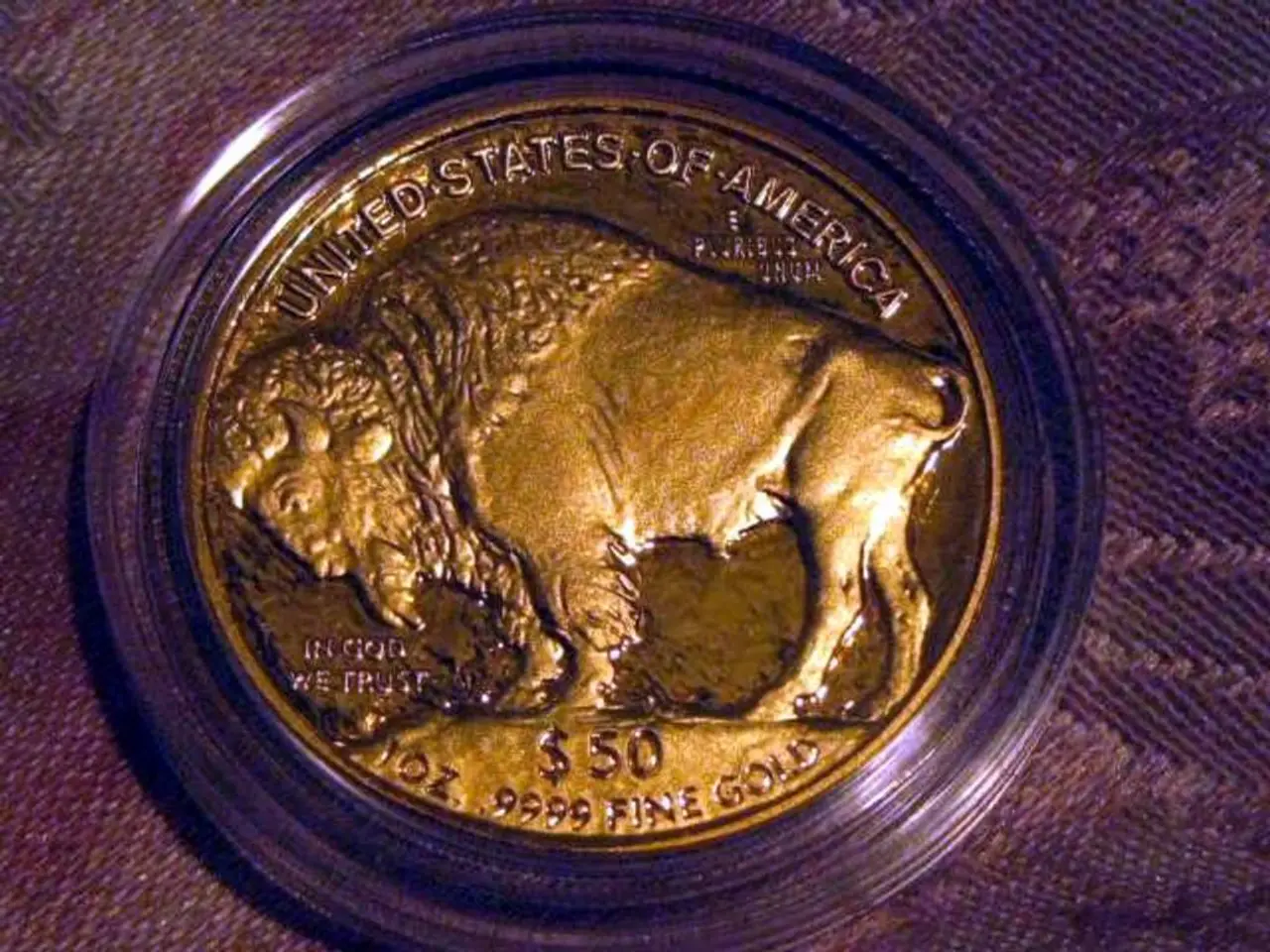Digital authorities firmly decline adoption of digital currencies
The global financial landscape is undergoing significant changes, with various contenders vying to dethrone the US dollar as the world's primary reserve currency. Scholars, economists, and financial experts from renowned institutions like Princeton University, UBS Asset Management, and the Bank of England have weighed in on the issue.
Harold James, the Claude and Lore Kelly Professor in European Studies at Princeton University, notes that historically, countries have turned to gold during periods of instability. However, discussions about de-dollarisation fall short when finding a credible replacement for the dollar in cross-border transactions, according to Herbert Poenisch, a senior research fellow at Zhejiang University.
One of the most prominent alternatives is the Chinese renminbi (RMB), which has been increasing its share in global reserves. Despite this growth, significant barriers remain, including capital controls, limited financial market openness, restrictions on currency convertibility, and geopolitical tensions with the US. As a result, while the renminbi’s global role is expected to grow, a fully multipolar reserve currency world with RMB dominance remains years or even decades away.
Emerging economies like Brazil, Russia, India, China, and South Africa (BRICS) have signaled intentions to build a new supranational monetary system. Proposals for a gold-backed monetary standard and regional trade in local currencies aim to bypass the dollar system. However, practical challenges exist, such as the choice of a central depository authority and underdeveloped legal frameworks in some member states, complicating immediate prospects for a BRICS-backed reserve currency system.
Interest in digital currencies, whether decentralized cryptocurrencies or state-backed CBDCs, is growing. Around 44% of reserve managers see potential in cryptocurrencies or stablecoins due to macroeconomic shifts. Stablecoins pegged to the dollar currently dominate the crypto market but do not constitute true alternatives since they derive value from existing fiat currencies. CBDCs could offer a path to reduce dollar reliance, but regulatory clarity and systemic adoption are still evolving, making their immediate impact peripheral.
There is renewed discussion about gold as a reserve asset or even a basis for monetary standards in alternative systems. Although some BRICS members hold sizeable gold reserves, gold faces practical limitations and risks as a direct monetary base in the modern system, such as liquidity constraints and price volatility.
Despite its significance, the euro is hindered by fragmented governance and lack of unified military or fiscal power, reducing trust and cohesion needed for a reserve currency role comparable to the dollar. Other currencies like the Japanese yen or British pound are smaller share players in global reserves and unlikely to replace the dollar.
Jesper Koll, global ambassador and expert director of Monex Group, Japan, writes that de-dollarisation could lead to Japan moving closer to the limelight. Jens Søndergaard, currency analyst at Capital Group, notes that a weaker dollar amid US policy volatility is creating opportunities for other currencies, but there is no real alternative yet.
OMFIF's Global Public Investor 2025 found that no central bank surveyed holds any digital assets, and 93% have no intention of doing so. Aaron Hurd, senior portfolio manager at State Street Investment Management, writes that lower returns and higher risk mark a change in dynamics for the US currency.
Despite these challenges, the US dollar still accounts for about 59-60% of global foreign exchange reserves. The dollar’s liquidity, infrastructure, and network effects make it uniquely positioned to remain dominant for the foreseeable future. Mark Sobel, US chair at OMFIF, writes that while the administration’s actions may erode the dollar’s dominance, it is not going anywhere soon.
In summary, while multiple candidates and initiatives exist to challenge the dollar’s supremacy, structural, political, and market frictions mean no alternative currently threatens its dominant global reserve currency status in the near term, though a more diversified and multipolar currency world is gradually emerging.
- Scholars like Harold James from Princeton University have pointed out historical instances where countries have turned to gold during periods of financial instability.
- A major challenge in finding a replacement for the US dollar in cross-border transactions is the lack of a credible alternative, according to Herbert Poenisch, a senior research fellow at Zhejiang University.
- The Chinese renminbi (RMB) has been increasing its share in global reserves, but significant barriers such as capital controls and geopolitical tensions with the US remain.
- Some debate about a new supranational monetary system has originated among emerging economies like the BRICS, aiming to bypass the dollar system through proposals like a gold-backed monetary standard and regional trade in local currencies.
- Around 44% of reserve managers see potential in digital currencies or stablecoins due to macroeconomic shifts, but practical challenges such as regulatory clarity and systemic adoption persist.
- The euro, despite being a significant currency, is hindered by fragmented governance and lack of unified military or fiscal power, making it less cohesive as a potential reserve currency.
- Japan may move closer to the limelight if de-dollarization occurs, according to Jesper Koll, global ambassador and expert director of Monex Group, Japan.
- No central bank surveyed by OMFIF's Global Public Investor 2025 holds any digital assets, and 93% have no intention of doing so.
- In contrast, the US dollar still maintains a dominance of about 59-60% of global foreign exchange reserves, with its liquidity, infrastructure, and network effects making it uniquely positioned to remain dominant for the foreseeable future.




